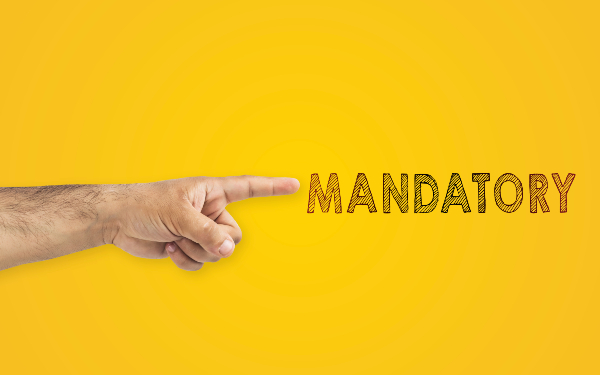
How does your employer manage excess workloads among social workers?
- They see excess workloads as part of social work. (55%, 323 Votes)
- They are sympathetic but don't do enough to change things. (28%, 165 Votes)
- They are doing their best to reduce workloads within resources. (16%, 96 Votes)
Total Voters: 584
Staff and volunteers working with children will face a duty to report child sexual abuse they are aware of, the government announced yesterday.
Those who fail to fulfil the mandatory reporting duty face being referred to the Disclosure and Barring Service (DBS) and potentially banned from working with children.
Also, it will be a criminal offence to intentionally block others from reporting CSA, punishable by up to seven years in prison.
Government mandatory reporting plan
The Home Office said that it would introduce mandatory reporting of CSA through amendments to the current Criminal Justice Bill.
The duty will apply to anyone carrying out regulated activities, which includes all unsupervised work or volunteering with children or work for specific establishments that gives the person the opportunity to have contact with children.
Though it has not provided the details of its plan yet, yesterday’s announcement made clear that the government would be, broadly, pursuing the model of mandatory reporting that it consulted on last year.
This falls short of the blueprint put forward by the Independent Inquiry into Child Sexual Abuse (IICSA) in its final report, published in October 2022.
Celebrate your colleagues
In our new series, My Brilliant Colleague, we’re asking you to celebrate each other. Write to us about a colleague’s excellent practice or support they’ve given you in a time of crisis.
You or your colleague have the option to be anonymous and the entries can feature anyone you work with, including team managers, practice educators and students. You can find more information in our nominations form.
CSA inquiry proposals
IICSA proposed that staff and volunteers working with children should be mandated to report CSA that was disclosed to them by the victim or perpetrator; that they witnessed, or in cases where they observed “recognised indicators” of abuse.
However, in its consultation, the Home Office rejected adopting the third criterion, after receiving “strong feedback” that “recognising child sexual abuse is likely to be difficult for those without formal training or who see children infrequently”.
This position was reflected in its statement yesterday, which said that the duty to report would apply in cases where the worker or volunteer knew that a child is being sexually abused.
Failure to report will not be crime
IICSA also said that it should be a criminal offence not to report abuse in cases where the practitioner had witnessed CSA or had it disclosed to them.
However, the Home Office said that it wanted to avoid inappropriately criminalising people who work with children and opted, instead, for referral to the DBS, potentially leading to being barred, as its chosen sanction.
IICSA saw mandatory reporting as being a way of tackling “systemic under-identification of CSA”, with experience from other countries showing that the policy led to a significant increase in identification.
Under-identification of abuse
The Centre of expertise on child sexual abuse (CSA Centre) has estimated that about 500,000 children are sexually abused in England each year, based on a 2009 prevalence survey by the NSPCC, updated for changes in population.
This dwarfs the 2,290 children were supported through child protection plans for CSA in England in 2022-23, the lowest level in 14 years, according to the CSA Centre.
Concerns over services being overwhelmed
Despite this, the Association of Directors of Children’s Services raised concerns about the prospects of a significant spike in referrals overwhelming services in its response to the consultation, and also following yesterday’s announcement.
“A rushed, poorly scoped and under resourced policy could adversely affect the very children it seeks to protect if services become overwhelmed and support is not available for children when they need,” said president John Pearce.
“Similarly, it may impact on workforce recruitment and retention, which is extremely challenging across a number of key professions, destabilising vital public services that children and young people rely on.”
While accepting that mandatory reporting was now government policy, Pearce called for talks with the Home Office, Department for Education and Ministry of Justice on the effective implementation of the plan.
Mandatory reporting ‘must be matched with resource’
There was also a cautious response from a coalition of 64 charities, IICSA Changemakers, set up to bring about changes in the response to CSA in the light of the inquiry.
“Adults and authorities’ responses to children’s disclosures are critical in ensuring young victims get the action and support they need,” said Vicki Green, chief executive of coalition member the Marie Collins Foundation. “But mandatory reporting must be matched with sufficient resources and easier access to therapeutic support services.
“Likewise, a legal obligation to report must not contribute towards young victims and survivors being unable to safely discuss abuse. It is vital that young people have safe, confidential spaces to discuss their experiences and talk to a trusted adult.”
Meanwhile, a former member of IICSA’s victims and survivors consultative panel (VSCP), set up to ensure victims’ experiences informed its work, stressed that mandatory reporting was just one of 20 recommendations from the inquiry.
Chris Tuck said: “It is part of a package of measures that need to be implemented in order to better protect children from child sexual abuse and exploitation. I personally welcome mandatory reporting but it needs teeth and sanctions in order to be successful.”






 Family help: one local authority’s experience of the model
Family help: one local authority’s experience of the model  ‘I spent the first three months listening’: how supportive leadership can transform children’s services
‘I spent the first three months listening’: how supportive leadership can transform children’s services  How senior leaders in one authority maintain a culture of excellence
How senior leaders in one authority maintain a culture of excellence  How staff support ensures fantastic outcomes for children and families
How staff support ensures fantastic outcomes for children and families  Workforce Insights – showcasing a selection of the sector’s top recruiters
Workforce Insights – showcasing a selection of the sector’s top recruiters 

 Facebook
Facebook X
X LinkedIn
LinkedIn Instagram
Instagram
Comments are closed.